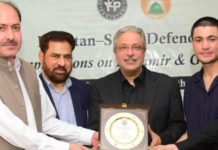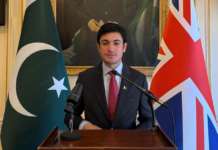Meta: If you are a Journalism in Pakistan be smart and try to be as mindful of your duty as possible.
Suppose you are a young, energetic, and vigorous Journalist who has just joined the media industry. You would have come with a dream to obtain both name and fame without being pressurized by any pressure group or the state itself. It can be otherwise as well, your teachers and mentors may have informed you about the possible threats and challenges. If they are honest and keep the emotions out of this, they would have informed you there is a good chance you may not survive without compromises. Maybe they put it out there in a cold, hard fashion: salaries are very ordinary but the issues are enormous.
Wait, issues? Challenges? For Pakistanis, especially for the youngsters like you, who live against the overwhelming reality that a job in any well-known TV channel is an achievement for a lifetime, challenges and pressure are not significant odds at all. Sure, the calculus is very crude: 27 Journalists have been killed in the last 5 years in Pakistan.
This is the number of Journalists killed in the post-war against terror era. At a time when Pakistan is supposed to become a safe haven for the local population as well as for the people coming here from the rest of the world. Earlier when Pakistan was in the state of war against terror, according to the UNESCO report – on average, 7-8 Journalists used to be killed each year. The numbers read 11’5’10’ and 8 in 2010’11’12 and 13 respectively. Since 2000, 158 Journalists in Pakistan have lost their lives while hundreds more report facing threats and attacks each year. The irony is that not even a single killer of the Journalists killed has been delivered punishment. Isn’t it a failure of the state of Pakistan?
A freedom network study, supported by IMS, shows not a single criminal was arrested and convicted by the state between 2013-18. Others who had just harassed, intimidated, and attacked Journalists also remained safe from the reach of the state institutions. This is a slam on the faces of the institutions that are supposed to safeguard each and every inch of this country.
As a result, in this ambiance of terror, our media industry has not evolved the way it has in the rest of the world. Even if you ignore the bad relations of the media and the state, Journalism is a very risky business in Pakistan. You have to play the balls to survive. Otherwise, you are going to be in trouble and financial losses may shut your business down. If you know nothing except Journalism, you are coerced to play the balls to stay in the news business.
After realizing this situation, over the years, our Saith-owned media has developed its own culture as well. There is so much politics and a war to gain more and more of the TRP. Governments and political parties use ads to reward and punish news channels. So, there are blocs – Pro Establishment and Anti-Establishment are the most famous ones. The former supports the current regime while the latter is mostly Pro-Nawaz in the contemporary media industry.
The media is supposed to do Journalism objectively in the public interest. Why there is support and opposition in our media industry? How did this division happen? According to the experts, in 2007 and 08, there were a couple of incidents that happened in quick succession in Pakistan; Benazir was martyred, Musharraf era’s end came with plenty of tensions and controversies, and then the Mumbai attacks happened. This is where the media started supporting any particular institution or party to find a shield against the pressure or threat that used to come from anywhere.
After 14 years, the threat is still there – TTP announced that it may attack Journalists who use the word “Terrorists” for the TTP soldiers. This announcement itself was a warning for future terrorist activities from the TTP but the state of the Islamic Republic of Pakistan remained silent. If you know you will be alone whenever threatened, won’t you support someone to avoid the monster?
Other than the terrorist organizations, military establishment, state institutions, agencies, and political parties, there are mafias- Business groups who can buy Journalists to gain support and positive reporting for their organizations.
As a result, Pakistani media is still very fragile as well as quite repellent. It has the tendency to get squeezed by powerful people. To be honest, it has structural flaws. Its business model is too conventional. It lacks the high standard of leadership as many international media organizations have. The worldview of the so-called intellectuals in our media is also not very broad. There are exceptions, but the majority is of the mediocre Journalists who survive just because of their good sources. Great sources can guarantee your authenticity, but can’t help you change your worldview.
There are no healthy discussions on global affairs, the economy, and the internal structural issues of Pakistan. It’s a scary media industry full of Journalists who come to their offices to survive every single day. In urban areas, they do survive and some of them do so quickly handsomely, but in the rural areas, reporters are assassinated or tortured by their local feudal lords or politicians but no news channel covers their news. It is as if Journalists have accepted that the lynching of anyone of their fraternity is as common as a bomb blast in Lahore used to be in the early 2010s.
This mindset is vexatious because the watchdog must be brave and bold instead of being fragile and scared. The weaker bonding and relationship of the state with the media industry is the main reason behind this all. Recently, a law has been passed that promises to protect the lives of the Journalists but all of us know how successful the state has remained in whipping out all the terrorist organizations from the county. The current government has divided Journalists into good and bad ones and it denigrates all the Journalists who support any opposition party.
In this crisis situation, many Journalists have started working on their own websites and YouTube channels but you don’t get off the hook there as well. When you work for an organization as a Journalist, it is supposed to protect you. Your editor takes responsibility for the story you file. If the owner of the organization takes a stand for you, you feel quite safer.
If the boss doesn’t play the balls, you can challenge others. As a YouTuber or freelancer, you do everything on your own. As a result, you can be another Matiullah Jan or AsadToor whenever you cross the line. You have to be careful. There can be more money on digital media, but you can be in the hot water once somebody decides to get rid of you. Therefore, If you are a Pakistani Journalist, be smart and try to be as mindful of your duty as possible.




